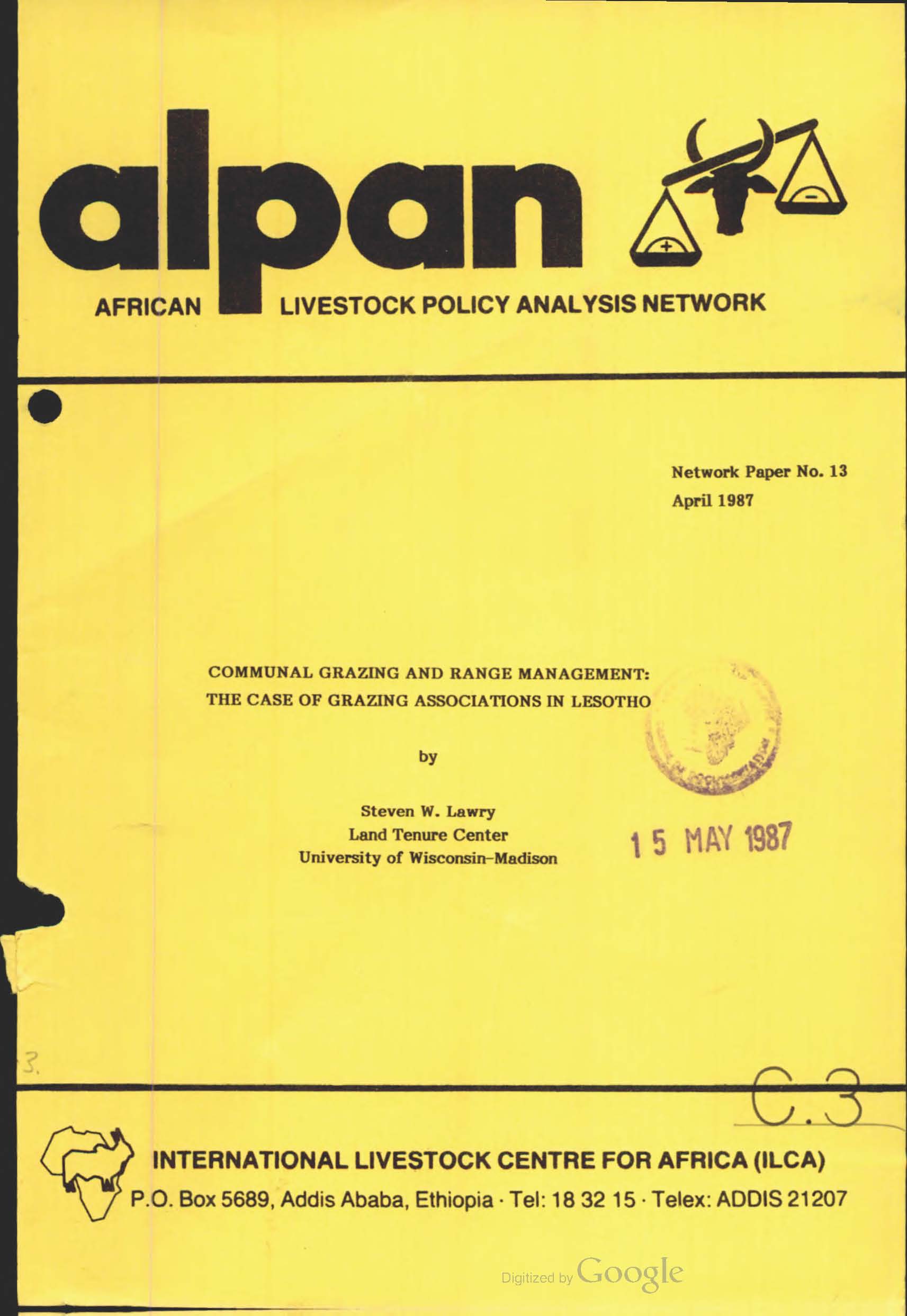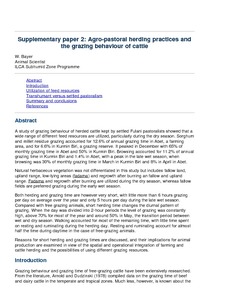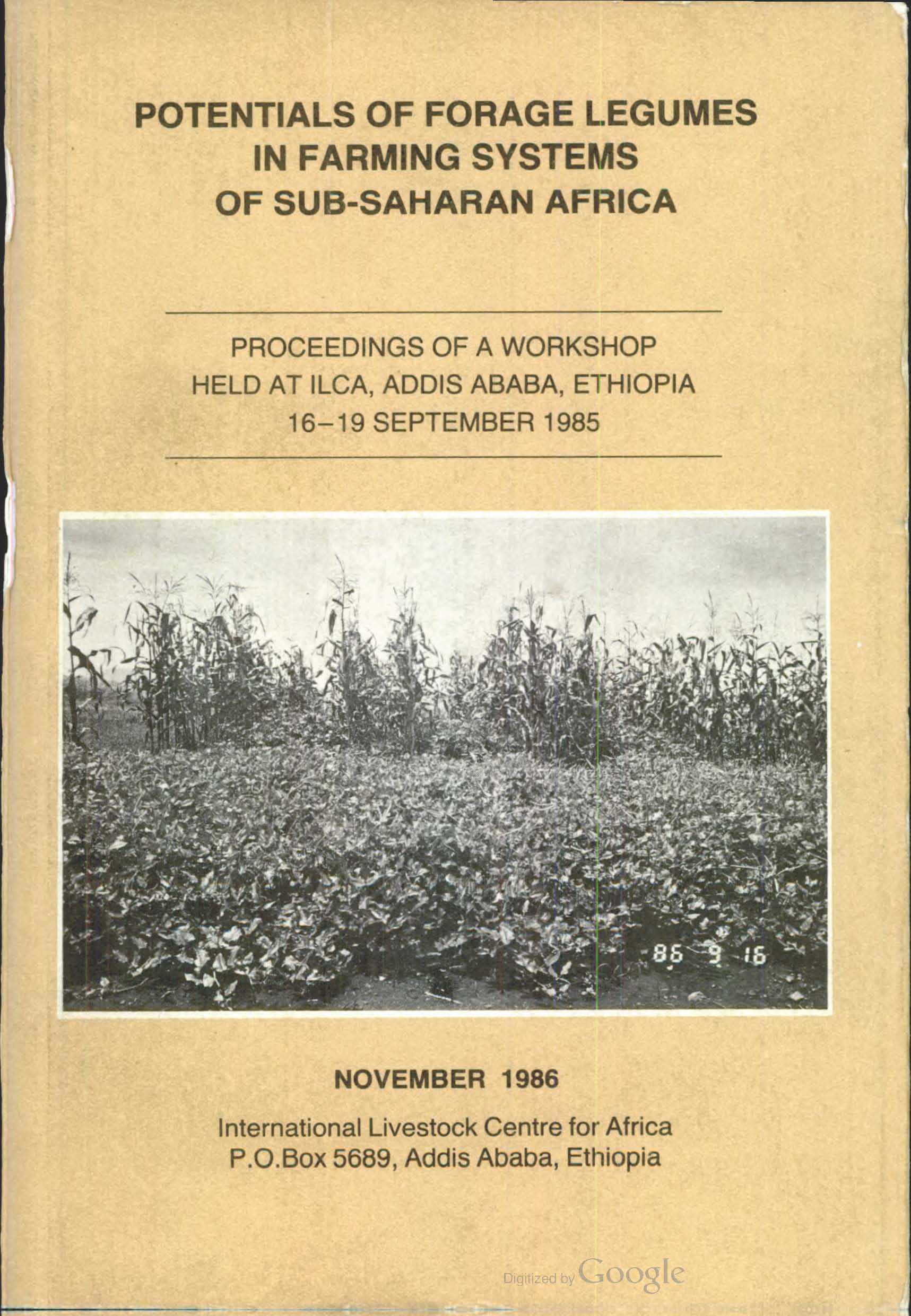Private and communal land tenure in Morocco's western High Atlas mountains: complements, not ideological opposites
In Morocco's Western High Atlas Mountains, Berber agropastoralists are oblivious to the ideological debate over land tenure occurring in the rangeland development community. Berber producers of sheep and goats use a continuum of tenure institutions, from private ownership, to communal control, to uncontrolled, open range. Far from being ideological opposites, these different types of land tenure are complementary tools.





